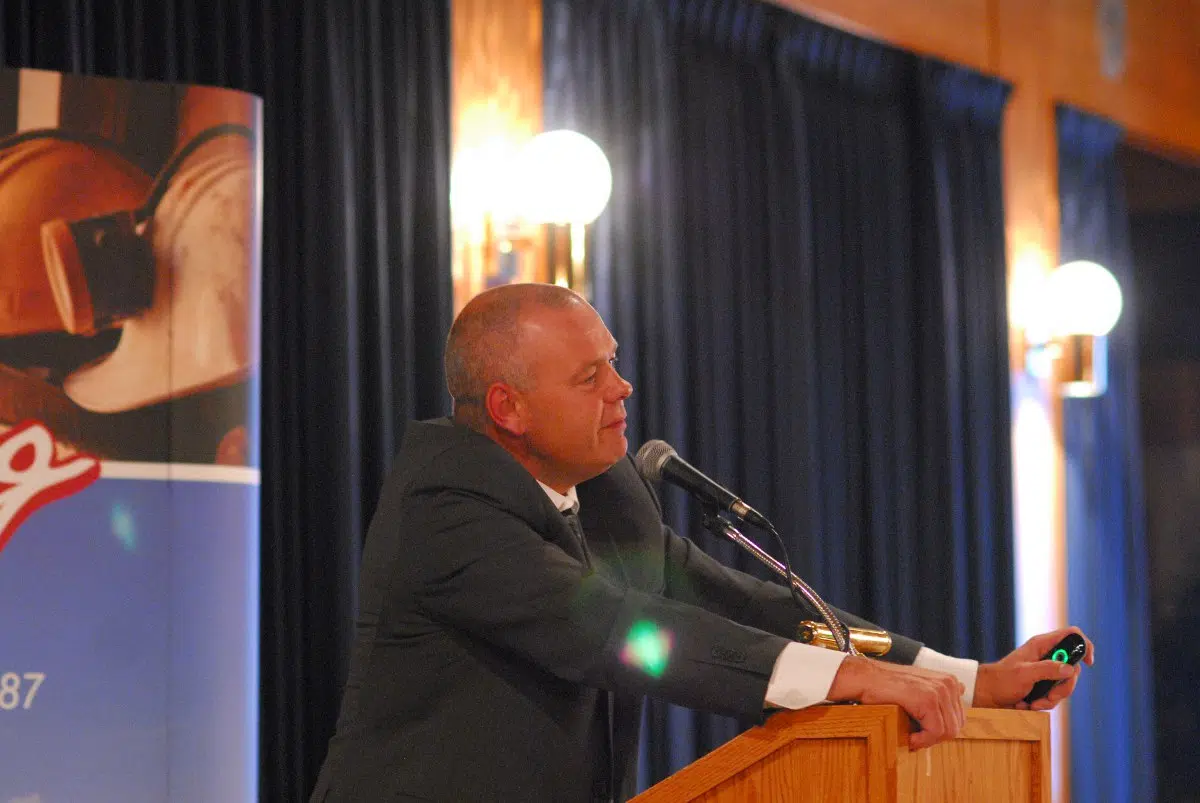
New policing model seeing tangible results
Since February, the Prince Albert Police Service, in collaboration with community service groups, have been trying an innovative method of policing to help reduce the root causes of crime, and so far it’s been working.
On Thursday, police chief Dale McFee gave a speech to the Prince Albert and District Chamber of Commerce. He talked about the trip he and representatives from various agencies took to Scotland and how lessons learned there were being applied to the Prince Albert.
And while it’s a common speech in the community—McFee said he’s delivered it some 70 times—this time he was talking about the results.
“Crimes against persons down 9.7 per cent, crimes against property down 12.7, crimes, other down 14.4 per, calls for service down 3.3,” he said. “Folks, we haven’t seen this stuff for 20-something (years) or at least living memory.”


